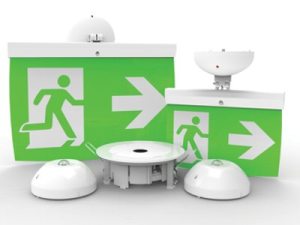 Corporate environmental responsibility continues to be a hot topic in the European business world. Richard Anderson, quality system administrator at Hochiki Europe, discusses how ISO 14001 helps businesses operate in a way that minimises environmental impact…
Corporate environmental responsibility continues to be a hot topic in the European business world. Richard Anderson, quality system administrator at Hochiki Europe, discusses how ISO 14001 helps businesses operate in a way that minimises environmental impact…
With European leaders striking a pact obliging EU members to cut carbon output and greenhouse gases by at least 40% over the next 15 years, climate change and global warming are once again near the top of the political and social agendas.
The Department of Energy and Climate Change outlined targets for carbon reduction in the UK in the Climate Change Act 2008, but it’s clear that the UK’s public and private sectors need to act more collectively to manage Britain’s environmental impact effectively.
The CRC Energy Efficiency Scheme is designed to improve energy efficiency and cut emissions in large organisations by requiring them to monitor and report their energy use annually. Although it does not affect every organisation, the CRC’s indirect influence means that all businesses are being encouraged to operate in a way that minimises their environmental impact.
The most effective way that this can be achieved is through the development of an ISO 14001 certified environmental management system. Over 223,000 organisations worldwide are now certified to ISO 14001. This helps them systematically reduce harmful effects they have on the environment by developing processes to lower energy and raw materials usage, reduce their waste and pollution. It not only ensures that a company is environmentally friendly; it also makes it more profitable and efficient.
Maintaining ISO 14001 certification is not easy and the culture of continual improvement that it requires can prove challenging. To properly maintain ISO standard, the complete environmental impact of supply chains must be reviewed and managed, key stakeholders must be engaged and a new corporate green-friendly ethos created.
Hochiki Europe is looking to enhance its recycling capabilities by working with companies that can reuse printed circuit boards and materials such as metal and plastic. In addition, the company is introducing a set of KPIs to substantially reduce levels of waste.
Furthermore, savings made in the manufacturing process can be reinvested into product development. Hochiki’s FIREscape, for example, is an intelligent, low-voltage, LED Emergency lighting system that could save up to £186,534 and 26 tonnes of C02 emissions over ten years, when compared to a manual test system.
In terms of installers and end users, by working with ISO certified companies, they reduce their own environmental impact through the use of more energy efficient and longer lasting products.
Businesses need to continually look at new ways to reduce energy consumption, limit the packaging they use, and optimise their supply chains. Hochiki Europe builds in excess of 500,000 conventional and intelligent fire detection products annually, so anything the company does to improve environmental management has a big impact, not only on carbon emissions but also on bottom line results. ISO 14001 allows businesses to build sustainability into the heart of what they do and is a great vehicle for coordinating environmental activities.

